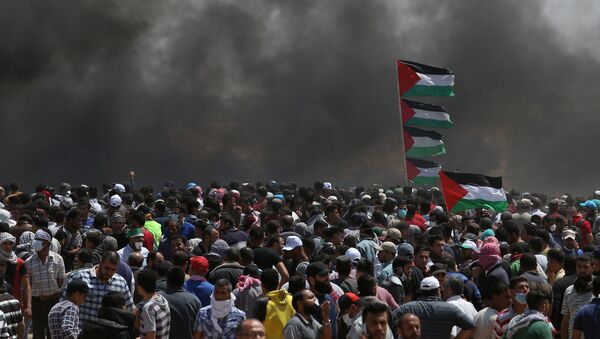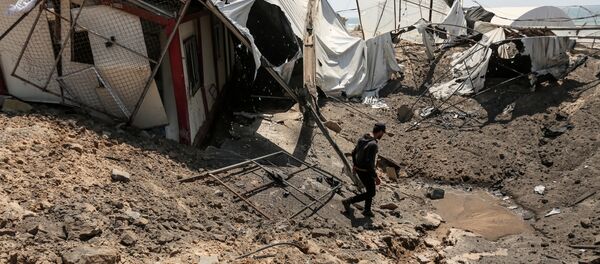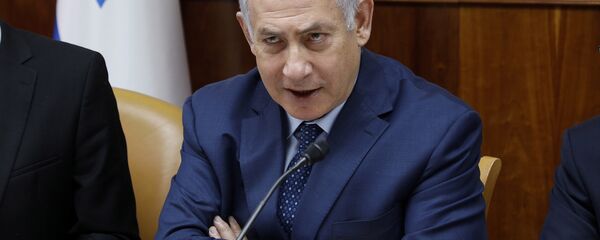Sputnik discussed the conflicting reports with Dr. Nimrod Novik, member of the Steering Committee of Commanders for Israeli's Security, and the Israel Fellow of the Israel Policy Forum. Mr. Novik was a Senior Advisor to Shimon Peres when he was Prime Minister.
Sputnik: Hamas' deputy chief stated that the group had agreed a truce with Israel while the latter denies the claim. What is your take on the conflicting statements? How achievable is the easing of tensions short-term?
Dr. Nimrod Novik: I think the differences between the statements from the Gaza and from Jerusalem reflect the playing on semantics for domestic audiences. The Gazans, of course, would like to pride themselves that Israel acknowledges Hamas' existence and reaches an agreement with it. Israelis prefer not to grant Hamas any such a credit, so [regarding] the agreement or the understanding that has been brokered, primarily by the Egyptians, each side prefers to call it something else, but the bottom line is that the two sides agreed to a ceasefire.
READ MORE: Gaza Tensions Part of 'De Facto Internal Palestinian Civil War' – Israeli Prof
Sputnik: Let’s look at what are the main factors that contributed to this really unprecedented scale of confrontation, the largest since 2014. Obviously, it all started somewhere around March, when the Palestinians began the rallies that were called the Great March of Return, but there were many factors there, right?
Dr. Nimrod Novik: Yes there are; I would say that the factors that we’ve seen in play over the last few months are the same that we saw in play before the last round of war in Gaza in 2014, and it seems that most players have not drawn lessons in terms of how to change the basic situation. Reaching a ceasefire after many are injured; this time, thank God, it was less than in previous occasions; but still, every life is precious, but we don’t see a major change in the situation. As an Israeli, of course, I expect more from my government, and I think that as the strongest player in the region, we share some of the responsibility, but I think there is a problem synchronizing the willingness of the various parties to change the dynamics, to change the situation, to change the conditions that create the repeated eruption of violence.
Sputnik: The experts that I’ve been talking with have all been saying a lot hinges on Gaza reconstruction and you can’t really solve this issue without that, without solving the plight of the people there…
The views and opinions expressed in this article are those of the speaker and do not necessarily reflect those of Sputnik.



